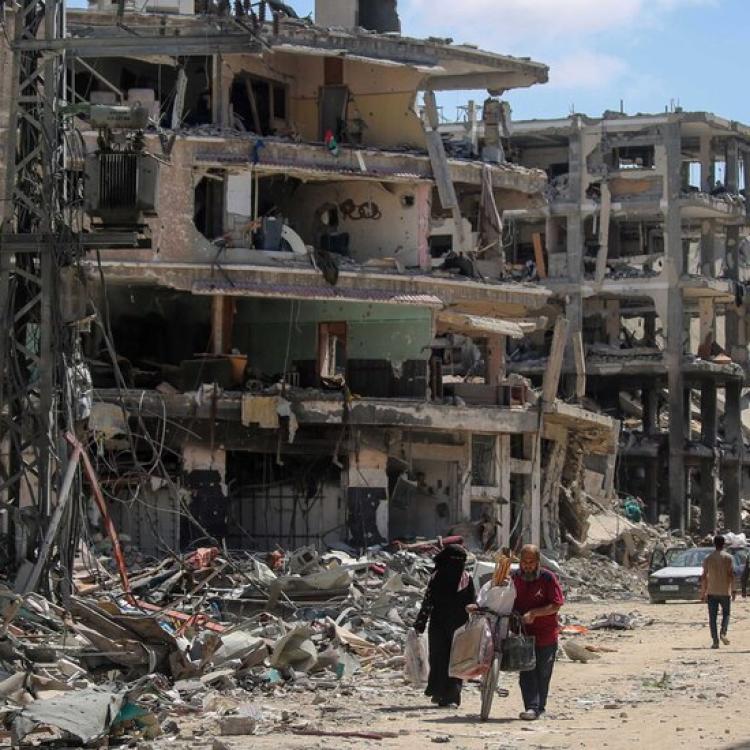![]()
A senior Palestinian diplomat to the United Nations has sounded alarm over Israel’s ongoing siege of northern Gaza, in which hundreds of Palestinians have been killed over the last week and hundreds of thousands of civilian residents are either trapped or ordered to flee amid intense bombardment.
As the Israeli military siege in the Jabalia refugee camp and its vicinity entered its 10th day on Sunday, Palestinian authorities said at least 200 people have been killed since the Israeli operations began earlier this month.
UN spokesperson Stephane Dujarric said civilians must "be protected at all times".
"The secretary-general condemns the large number of civilian casualties in the intensifying Israeli campaign in northern Gaza, including its schools, displacing sheltered Palestinian civilians," he told reporters at a news conference in New York.
The offensive had also forced the closure of water wells, bakeries, medical points and shelters, as well as the suspension of other humanitarian services, including malnutrition treatment, it warned.
The UN said it had not been allowed to deliver essential supplies, including food, since 1 October, with two nearby border crossings closed and no deliveries allowed from the south.
Hussam Abu Safiyeh, director of Kamal Adwan hospital in Beit Lahia in northern Gaza, said no food or medicine had reached the hospital for 10 days, depleting its already meagre supplies and forcing it to scale down medical services.
“There’s a full siege on the north of Gaza. Medicine, treatments, food — everything is prevented from reaching us,” he said. “In the coming days, if no solution arises, we will face another catastrophe: famine.”
The hospital had received an evacuation order two days ago, he added. But the doctors did not leave and new patients kept arriving, with the intensified bombing leaving the hospital’s wards overflowing.
“There are many people still in the north, still needing medical treatment. It’s very difficult to evacuate such a hospital that provides humanitarian services,” he said. “No one is going to leave. No safe place exists in Gaza for people to go to anyway.”
Read more here



